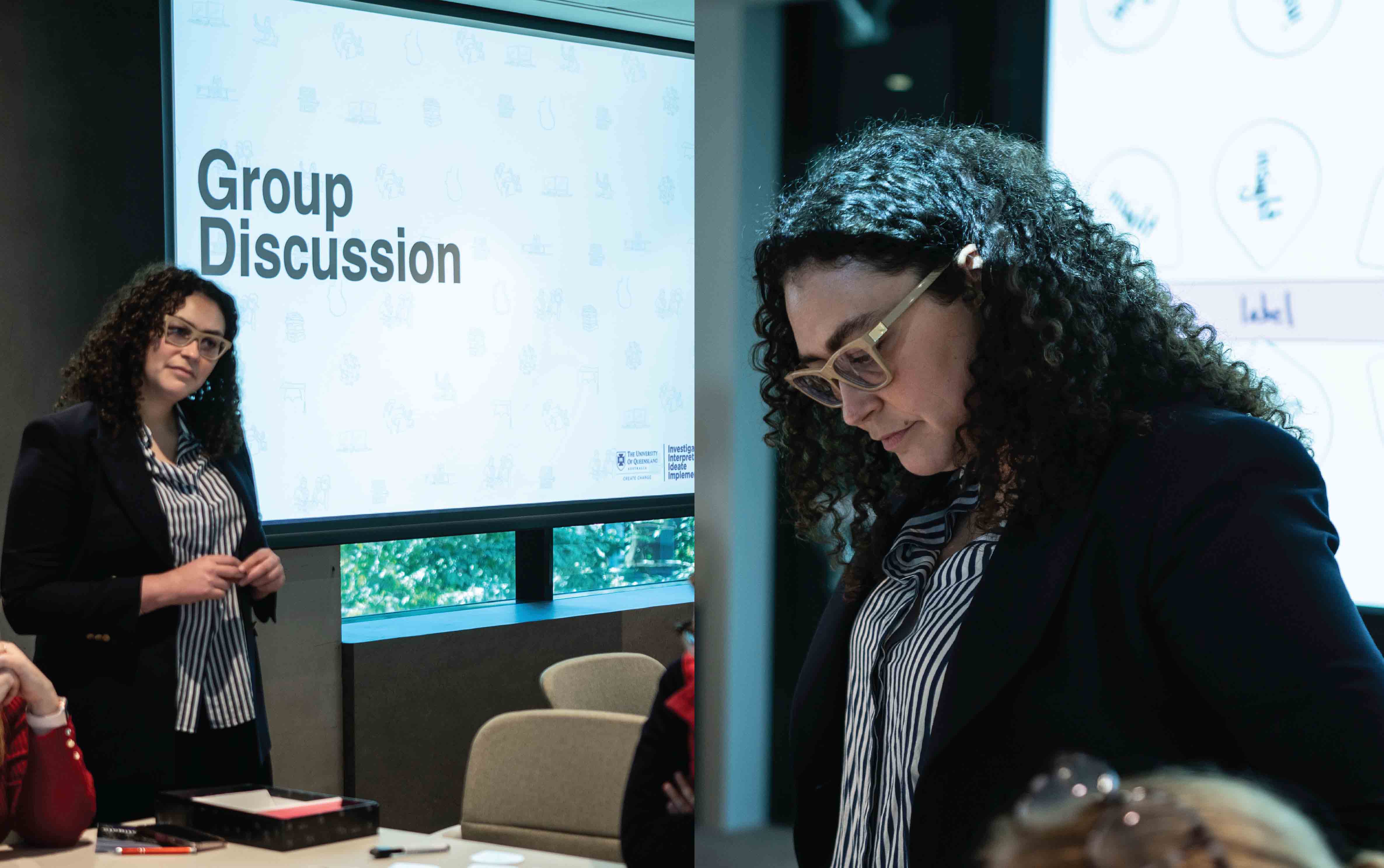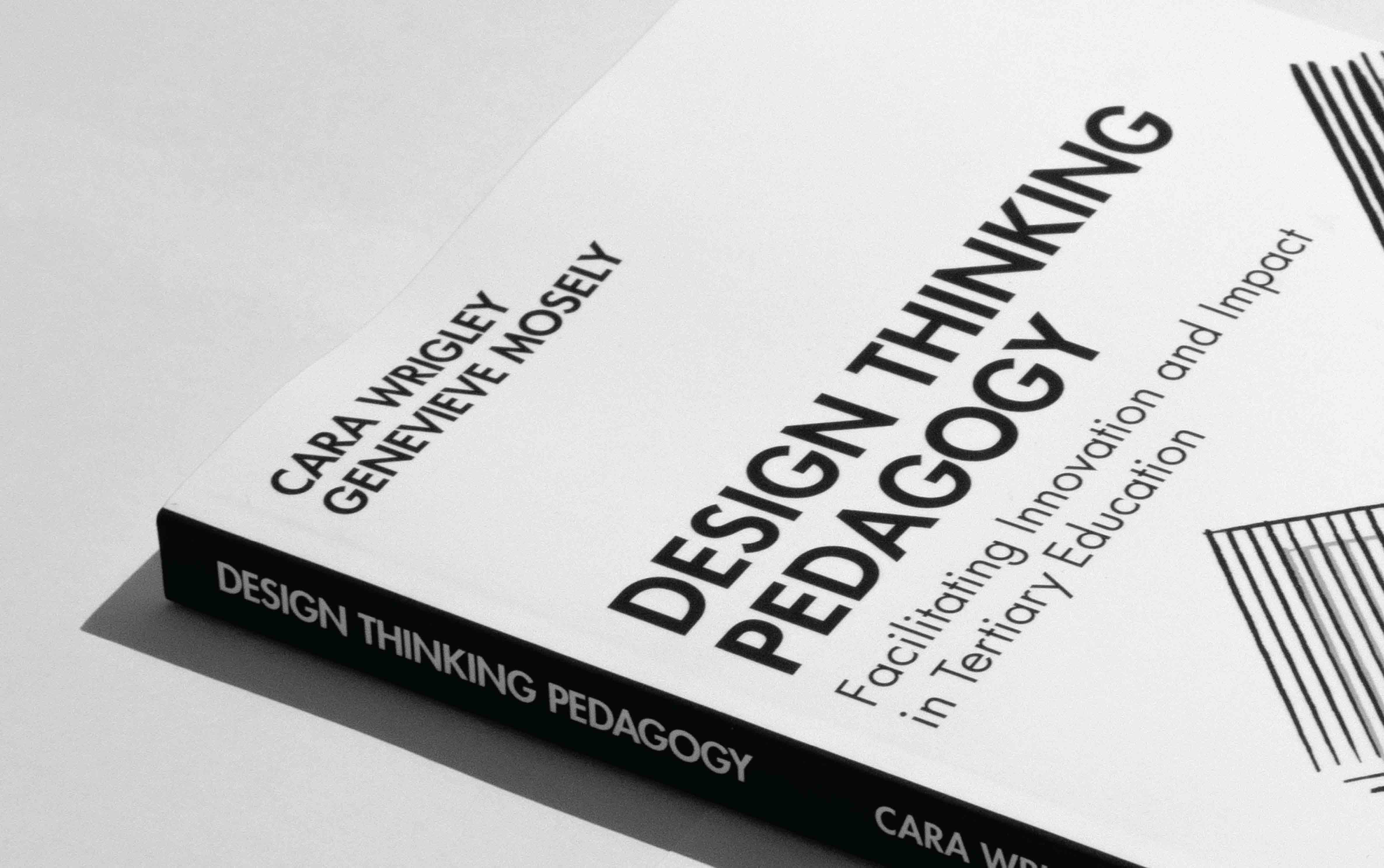Across years of working on design projects in industry and higher education contexts, Genevieve Mosely noticed a concerning mismatch between the demand for designers skilled in design facilitation practices, and what she describes as the more static state of design education.
She took this concern and made it the focus of her recently completed PhD thesis, titled “The Shifting and Evolving Practice of Design: (Re)conceptualising Design Facilitation” (currently embargoed). The study, completed within the School of Architecture, Design and Planning, presents an integrated conceptual framework of design facilitation practice. It also provides valuable insight into how design facilitation practice might be better built and supported by industry and education.
“My thesis responds to the emerging changes in the field of design and the widening skill set required of today’s designers,” said Dr Mosely.
“It does this by specifically drawing attention to and investigating the role of design facilitation, an underexamined and fragmented aspect of design practice.
“It recognises a shift in design practice towards facilitating creative interdisciplinary collaboration with users and stakeholders, positioning design facilitation as central to the effective implementation of design interventions within diverse innovation contexts.”

Dr Mosely said the gap between the industry’s growing demand for designers skilled in design facilitation practices and the static state of design education often leaves graduates without the necessary facilitation capabilities. And then in practice, failed design interventions are often blamed on the design process as opposed to the designer facilitating that process, she said. The conceptual framework developed as part of the study integrates personal aspects (the design facilitator) and shared aspects (the environment of design facilitation) of design facilitation into a coherent whole.
Dr Mosely said her thesis also presents the first systematic reviews in the field investigating design facilitation, and the first large global interview study of design facilitation practitioners. She interviewed 36 design practitioners experienced in facilitation practices across both academia and industry, with participants recruited from Australia, New Zealand, the UK, USA, Finland, The Netherland and The United Arab Emirates.
The research is informed by Dr Mosely’s substantial involvement in diverse design projects, including collaboration on high-impact projects that bridge practice and research. This includes Australian Research Council and industry-funded projects across three universities, with partners including the Royal Australian Airforce, the Australian Defence College, TAFE NSW and the NSW Department of Education.

“As a design practitioner I have worked in teams developing collaborative design methodologies to help address complex problems and deliver meaningful solutions,” she said.
“The intent of these projects is to serve as a bridge, exploring the value design holds for industry while investigating how practical applications of design can inform academic research and education to expand the boundaries of the design field, particularly its role in facilitating interdisciplinary collaboration to drive positive and meaningful change.”
Professor Cara Wrigley, principal supervisor, said the PhD pioneers the practice of design facilitation, “a crucial yet often overlooked discipline in both industry and education.”
“Breaking new ground is never an easy task, but the rigor and depth of this research are a testament to Genevieve’s exceptional capability as a scholar. On behalf of her supervisory team, we extend our heartfelt congratulations,” she said.
In 2023 Dr Mosely published the book Design Thinking Pedagogy: Facilitating Innovation and Impact in Tertiary Education (Routledge), a collaboration with Professor Wrigley. The book explores the expanding and interdisciplinary nature of design and how it is positioned to bridge traditional siloed disciplines in tertiary education to solve complex problems.

In 2025 Dr Mosely and Professor Wrigley are continuing to collaborate, this time on a study of international expert design educators and practitioners. While carrying out the research for their 2023 book, the pair noticed an increase in the number of higher education design thinking courses being offered outside of the design discipline, and non-design-trained educators tasked with teaching them. The study will address a need for more support from expert design educators in constructing strong pedagogical approaches for teaching design thinking.
Dr Mosely said she felt a combination of relief and pride at completing her higher degree by research studies, and excitement about what is to come.
“It’s exciting to think about how this work fits into the broader conversation around design facilitation and the impact it will have,” she said.
“At the same time, there’s an awareness that this is just the beginning of my research career and practice, so there’s a sense of readiness for the next steps.”
Dr Mosely is grateful for the guidance and support of her supervisors, Professor Cara Wrigley, Professor Lina Markauskaite and Professor Jason Lodge.
“Their expertise and constructive feedback not only helped refine my research but also encouraged me to think critically and expand my perspective. The mentorship I received was crucial in shaping both the content and direction of my research.”
Dr Mosely also wished to thank the participants of the study for their willingness to respond and engage in discussions about design facilitation.
This PhD research was supported by the Australian Government Research Training Program Tuition Fee Offset and Research Training Program Stipend Scholarship; a UQ Research Higher Degree Top-Up Scholarship; and School Research Grants from the School of Architecture, Design and Planning.
The thesis was conferred by the UQ School of Architecture, Design and Planning on 1 November 2024 and is currently under embargo.



